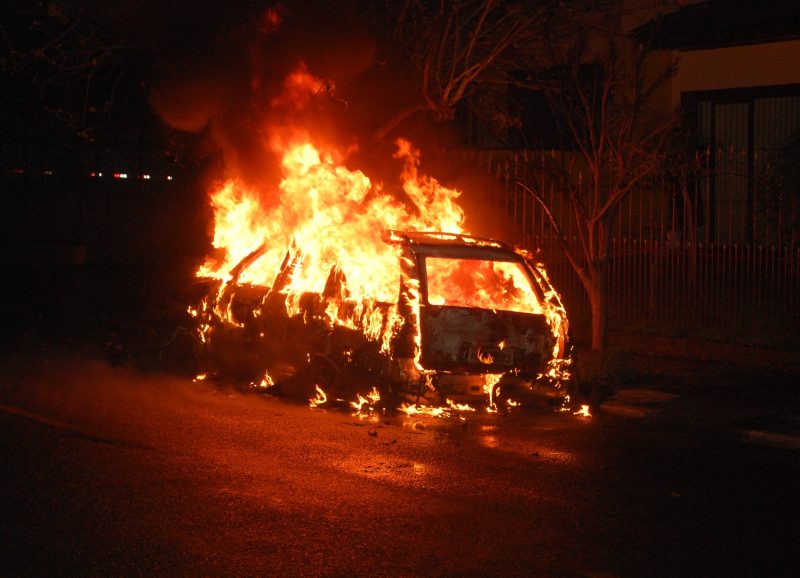Rio de Janeiro’s public transport system fell victim to a meticulously co-ordinated assault on October 23rd, as criminals, in apparent retaliation for police killing a senior paramilitary leader, set fire to at least 35 buses, four trucks, and even a train in what has become one of the most significant criminal attacks in Rio’s history. The eruption of violence, which brought parts of Brazil’s iconic city to a standstill, is not just an isolated incident but a stark reminder of the long-standing battle with crime that has claimed thousands of lives each year. Now, questions have been raised about the influence of feared paramilitary groups and the government’s ability to bring organized crime under control.
“The westside is ablaze,” security specialist Cecília Olliveira, founder of violence-monitoring group Fogo Cruzado, tweeted. Harrowing footage surfaced on social media, depicting passengers desperately leaping from a bus engulfed in flames, with thick plumes of black smoke spiraling into the sky. One notable headline from O Globo, a respected publisher, emphatically declared that Rio was “under siege.”
City Hall, recognizing the magnitude of this high-impact event, urged citizens to steer clear of affected areas.
In response to the attacks, Governor of Rio de Janeiro Cláudio Castro initiated a strong counter-offensive, arresting 12 criminals linked to the fires under charges of “terrorist acts.” In a resolute vow, Castro declared, “Evil will not prevail over Good,” warning organized crime groups not to dare challenge the state’s authority.
However, security experts have characterized the 23rd’s attacks as a brazen affront to Rio’s authorities, laying bare successive governments’ systemic failures in combating organized crime. The eruption of violence occurred mere hours after the shooting of Matheus da Silva Rezende, the 24-year-old nephew of Luis Antonio da Silva Braga (known as Zinho), one of Rio’s most notorious criminal leaders. Rezende was reportedly killed during a police operation in Três Pontes, a favela notorious for its stronghold of militias.
According to a report by Fogo Cruzado, these militias, originally conceived as community self-defense units comprising off-duty police officers and prison guards, have burgeoned into criminal mafias. The militias now preside over an area nearly equivalent in size to Birmingham, the U.K.’s second-largest city, inhabited by more than 1.7 million residents.
In response to the attacks, it is vital to emphasize the rejection of violence and the need for more effective, well-rounded peace processes. While violence may seem like a quick solution, it often exacerbates the underlying issues, leading to further conflicts. Instead, we should advocate for solutions which prioritize dialogue, co-operation, and adherence to international laws. By engaging all parties, including government officials, law enforcement agencies, and community representatives, we can work towards comprehensive strategies which address the root causes of such violence.
While the violent attacks on Rio de Janeiro’s public transport system are deeply troubling, they underscore the urgency of addressing the systemic issues which fuel violence and organized crime, not with further violence, but with a comprehensive and multifaceted approach to peace and security. Failure to do so could lead to a recurring cycle of conflict and instability, but by fostering dialogue and co-operation among the parties involved, there is hope for a future where the well-being and rights of all the region’s residence are safeguarded. These events serve as a cautionary tale, illustrating the need for holistic strategies and adherence to international norms to ensure stability in the near and far future.


